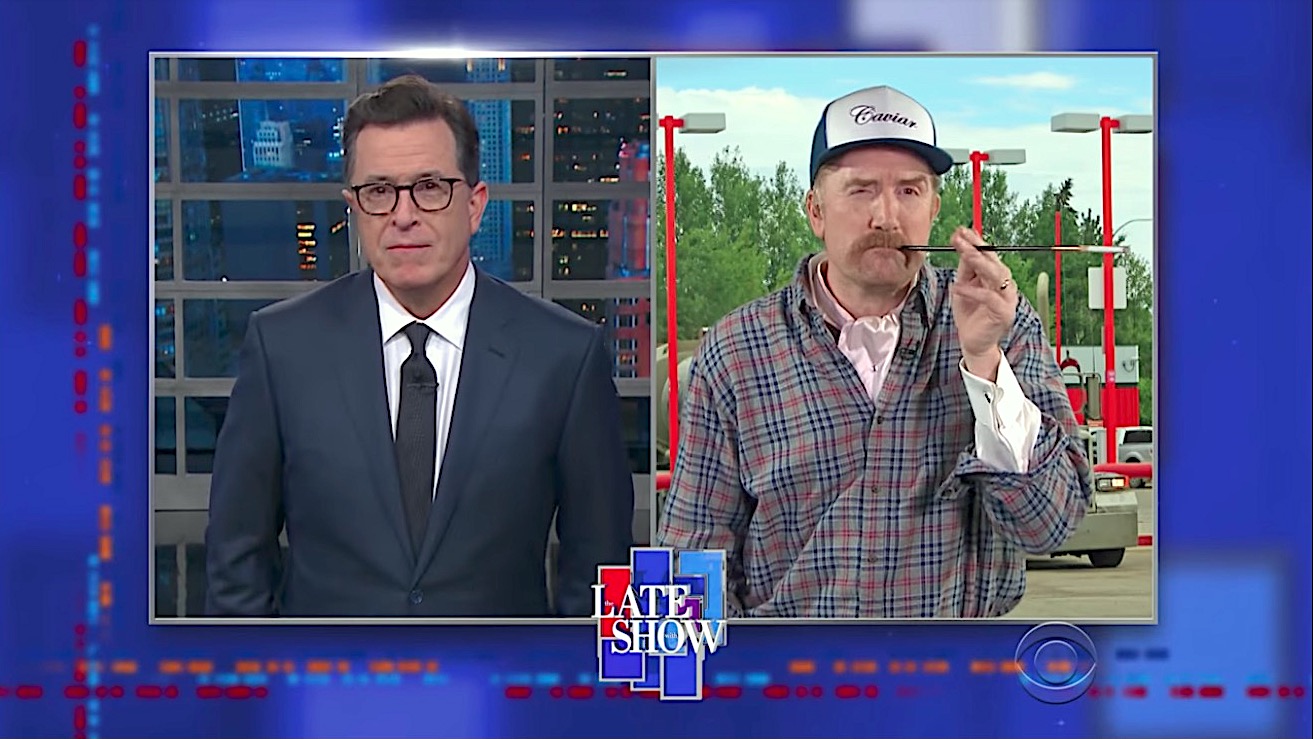Stephen Colbert wonders which 'elite truckers' are stoked by Trump's millionaires-only tax cuts


A free daily email with the biggest news stories of the day – and the best features from TheWeek.com
You are now subscribed
Your newsletter sign-up was successful
President Trump held a big signing ceremony Thursday for his executive order to undermine ObamaCare, but he forgot one small thing, Stephen Colbert showed on The Late Show. "That is troubling — at the signing he forgot to do the signing. But on the plus side, let's hope he forgets the launch codes." The rest of his monologue was dedicated to Trump's pitch for his tax plan on Wednesday night, in front of a group of truckers in Pennsylvania.
Trump summarized his tax plan with two words, "huge, rocket," which left Colbert confused. But Trump clarified a bit, explaining that some business taxes will be at an 80-year low when he's done. "Yes, bottom line: He's taking our tax plan back more than 80 years, to the 1930s, the era that will forever be known as the Great Happiness," Colbert said. "And the president came down hard on the tax that truckers hate the most: the one that only applies to dying millionaires," the estate tax. Out of about 186,000 working trucking companies, roughly 30 would be helped by repealing the estate tax — which applies to individuals worth $5.5 million or couples worth $11 million — he said. "So who are these elite truckers?" Well, he found one:
Colbert also subbed himself in for Sean Hannity in Hannity's pre-rally interview of Trump. You can watch that below. Peter Weber
The Week
Escape your echo chamber. Get the facts behind the news, plus analysis from multiple perspectives.

Sign up for The Week's Free Newsletters
From our morning news briefing to a weekly Good News Newsletter, get the best of The Week delivered directly to your inbox.
From our morning news briefing to a weekly Good News Newsletter, get the best of The Week delivered directly to your inbox.
A free daily email with the biggest news stories of the day – and the best features from TheWeek.com
Peter has worked as a news and culture writer and editor at The Week since the site's launch in 2008. He covers politics, world affairs, religion and cultural currents. His journalism career began as a copy editor at a financial newswire and has included editorial positions at The New York Times Magazine, Facts on File, and Oregon State University.
-
 ‘Restaurateurs have become millionaires’
‘Restaurateurs have become millionaires’Instant Opinion Opinion, comment and editorials of the day
-
 Earth is rapidly approaching a ‘hothouse’ trajectory of warming
Earth is rapidly approaching a ‘hothouse’ trajectory of warmingThe explainer It may become impossible to fix
-
 Health insurance: Premiums soar as ACA subsidies end
Health insurance: Premiums soar as ACA subsidies endFeature 1.4 million people have dropped coverage
-
 TikTok secures deal to remain in US
TikTok secures deal to remain in USSpeed Read ByteDance will form a US version of the popular video-sharing platform
-
 Unemployment rate ticks up amid fall job losses
Unemployment rate ticks up amid fall job lossesSpeed Read Data released by the Commerce Department indicates ‘one of the weakest American labor markets in years’
-
 US mints final penny after 232-year run
US mints final penny after 232-year runSpeed Read Production of the one-cent coin has ended
-
 Warner Bros. explores sale amid Paramount bids
Warner Bros. explores sale amid Paramount bidsSpeed Read The media giant, home to HBO and DC Studios, has received interest from multiple buying parties
-
 Gold tops $4K per ounce, signaling financial unease
Gold tops $4K per ounce, signaling financial uneaseSpeed Read Investors are worried about President Donald Trump’s trade war
-
 Electronic Arts to go private in record $55B deal
Electronic Arts to go private in record $55B dealspeed read The video game giant is behind ‘The Sims’ and ‘Madden NFL’
-
 New York court tosses Trump's $500M fraud fine
New York court tosses Trump's $500M fraud fineSpeed Read A divided appeals court threw out a hefty penalty against President Trump for fraudulently inflating his wealth
-
 Trump said to seek government stake in Intel
Trump said to seek government stake in IntelSpeed Read The president and Intel CEO Lip-Bu Tan reportedly discussed the proposal at a recent meeting
